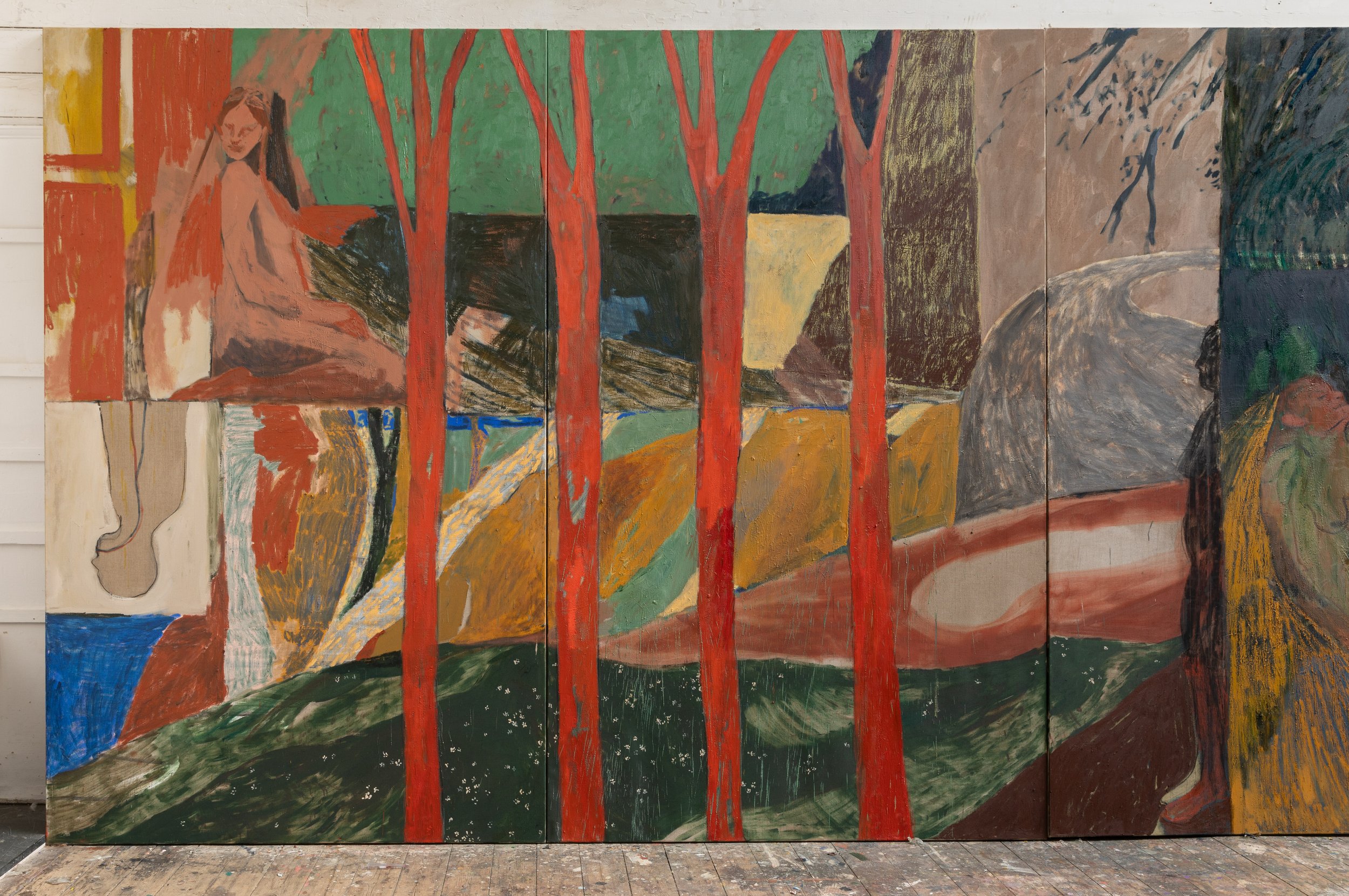
The Genesis Project
315cm x 2,340cm
oil, charcoal, hessian. and encaustic on linen
2024
Image courtesy of Camilla Greenwell
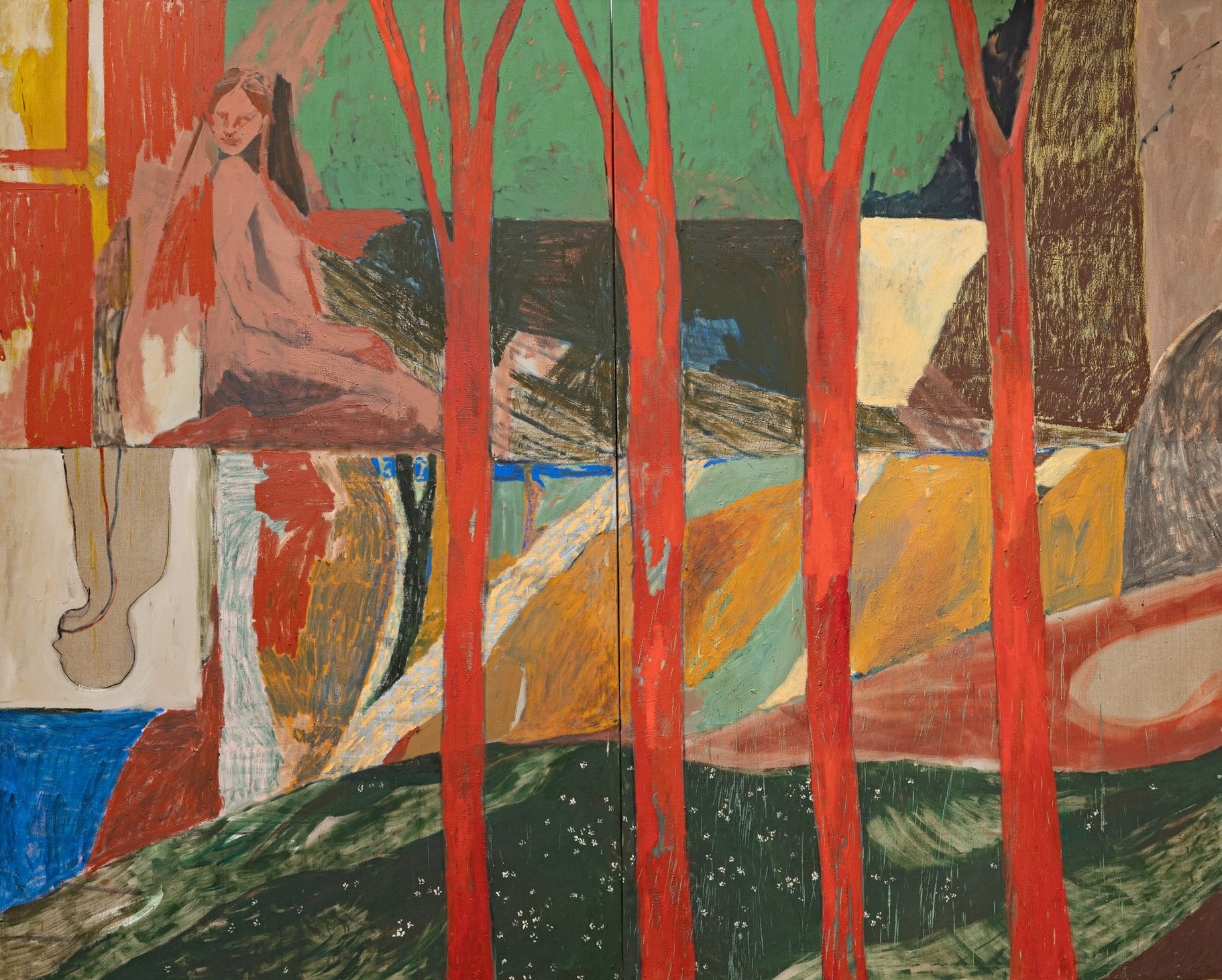
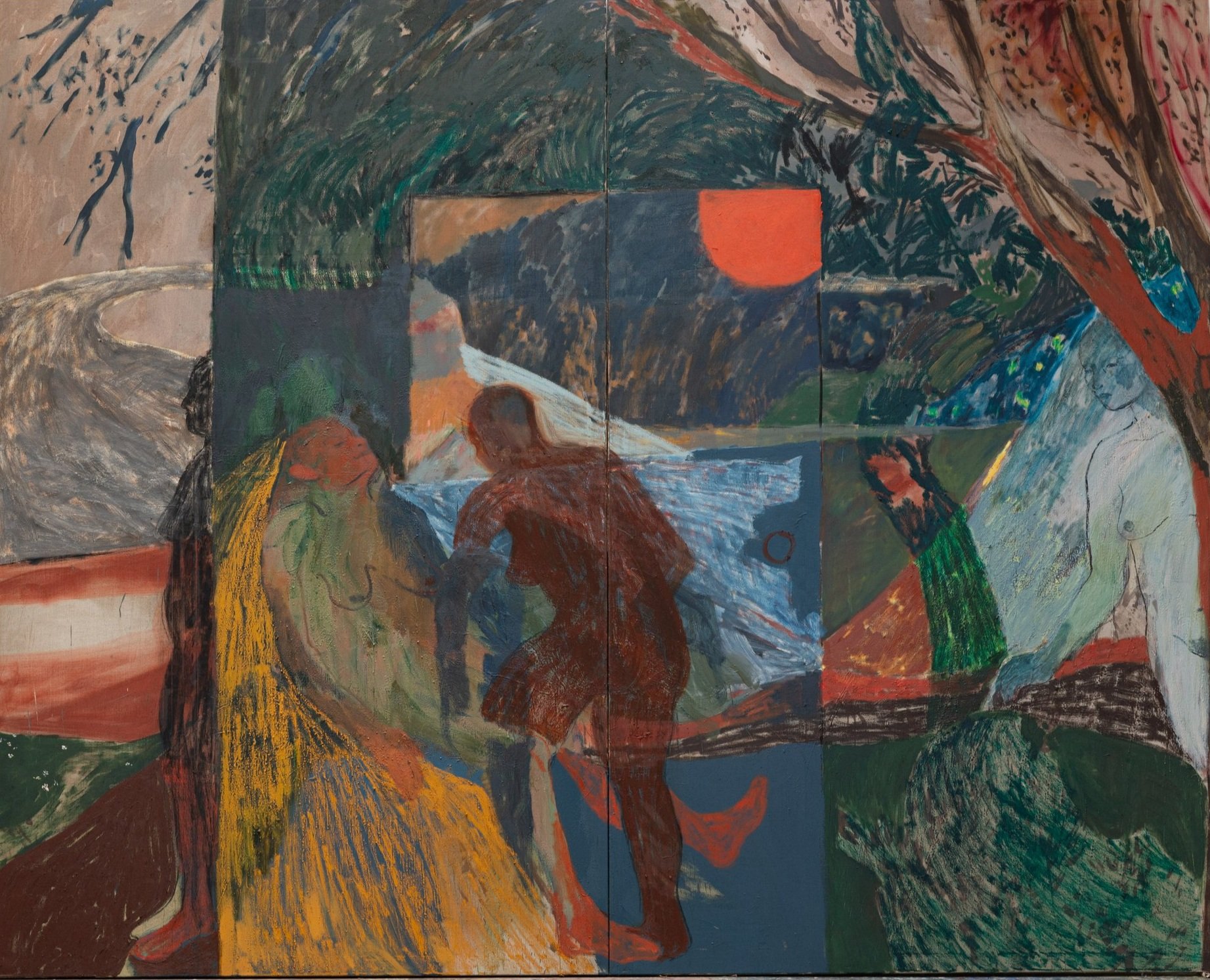
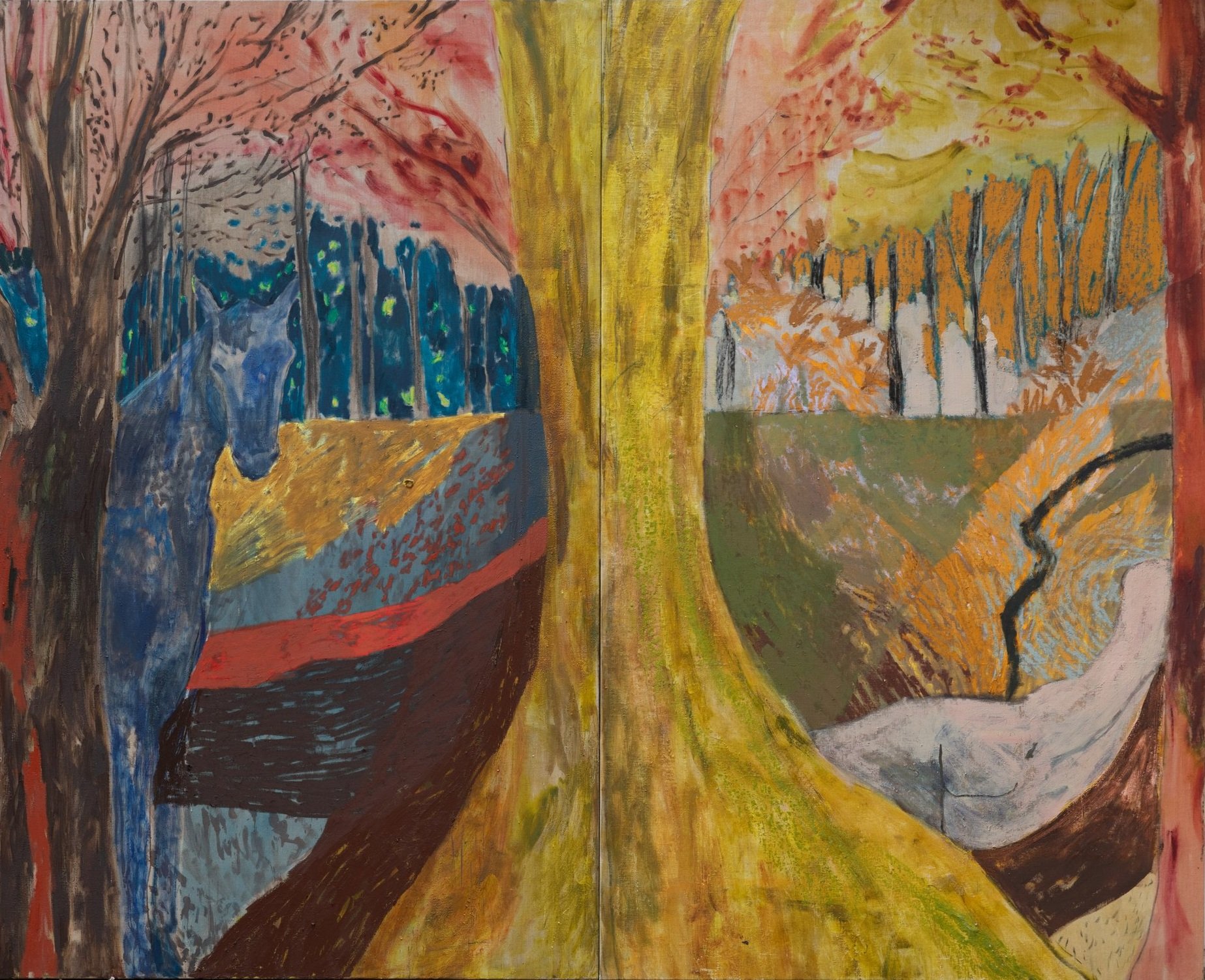
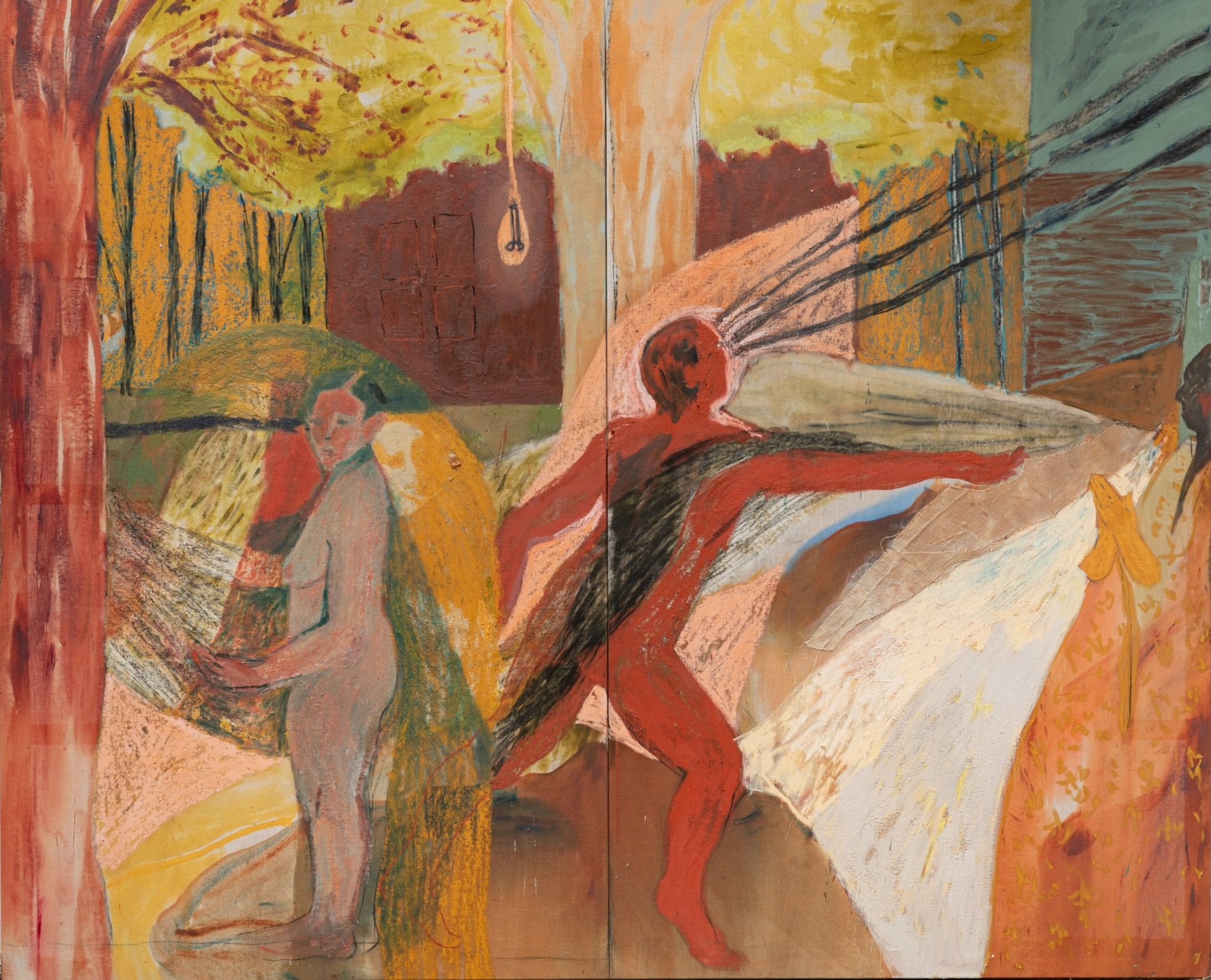
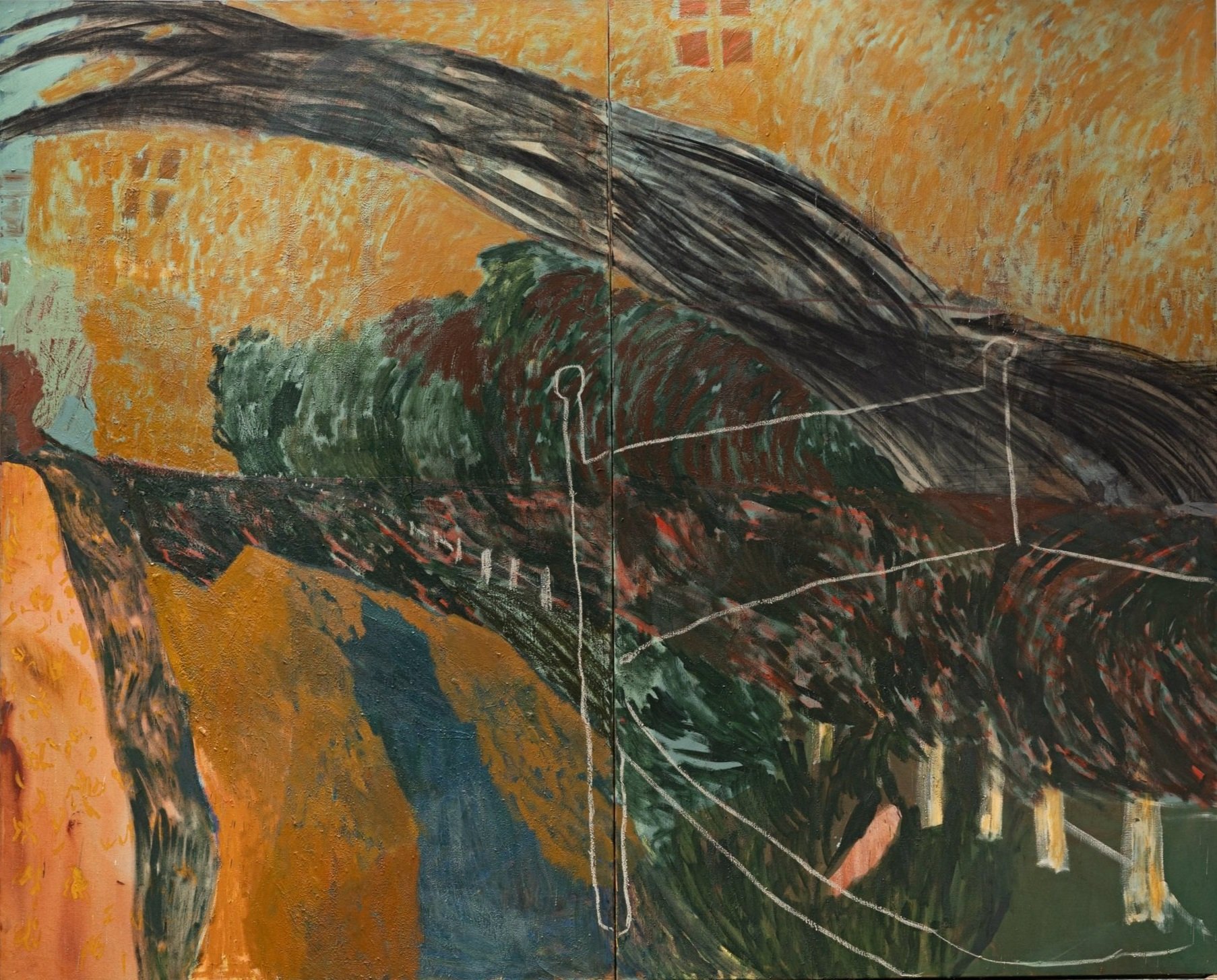
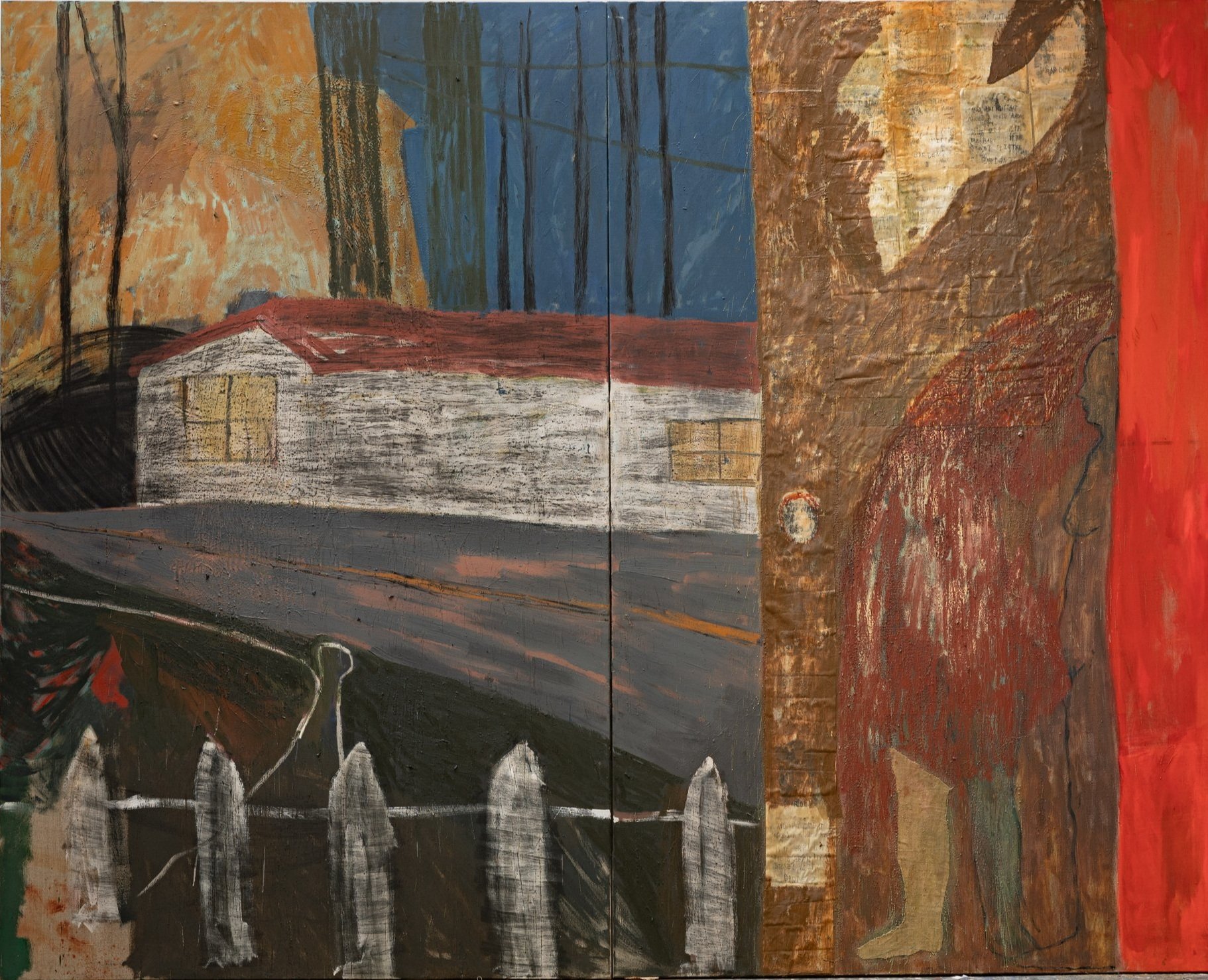
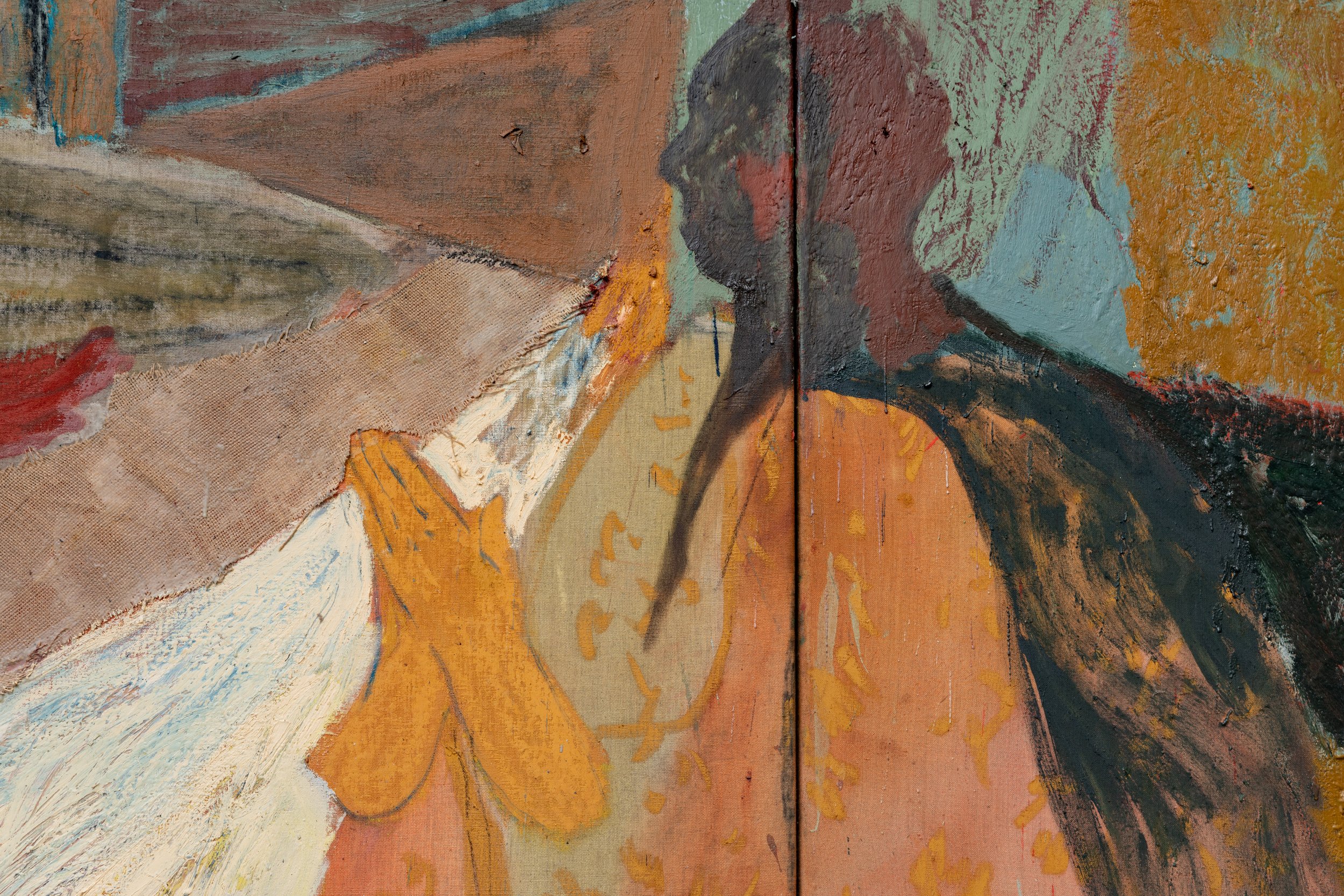
Words on The Genesis Project
I am deeply concerned about how fables—especially those told in the context of organized religion—have impacted society and enmeshed themselves in the roles that we are cast into within its structure.
When beginning this project I knew that I wanted to create an immersive environment that offers a questioning of the story of Genesis and interrogates the role that this story casts Eve into. Why was Eve’s gift of knowledge seen as the greatest sin? For this research, I turned to a series of relevant texts. These included: The Women’s Bible by Elizabeth Cady Stanton, Revelations: An Illuminated Manuscript by Judy Chicago, Cycle of Lilith: The Book of the Serpent, and The Argonauts by Maggie Nelson. Through these readings, I started to question the notion of heroes and villains.
When one begins to reframe their viewpoint, one begins a path of reconsideration. If Lilith, Adam’s first wife, refuses to lay under him and assume a role of subservience, thus becoming a “villain” then she is a villain to whom? To male dominance? If Eve expresses her own free will and—in doing so—engages with her personal relationship to the natural world, this act is sinful to whom? Could it be possible that her access to knowledge might be seen as threatening if only to her role as a mere mindless and amicable plaything to Adam? Could her having access to thought, pleasure, and ideas outside of the ones Adam and male God provide her be seen as threatening?
The answer felt glaringly obvious. Yes. But, perhaps only to the control that they wish to enact upon her. What is the agenda of this control? Well, if the womb is the true origin of life, and man is actually just a fertilizer to her seed, then in order to control life, man must control Eve’s womb for without her he has no ability to bare children, he would die out. Her autonomy over her own body and mind becomes deeply threatening to him. So, the ultimate goal man is considered to have—survival—depends on his domination and control of the origin of life itself: the womb. Given the status of Roe v. Wade in the United States and the rights of women quickly being stripped globally this feels deeply relevant to today’s society.
With these considerations at play, then all other acts of sexuality that do not serve this goal are also labeled as sin, and as villainous. Perhaps there is no more threatening a thing than queerness. Than women seeking pleasure, safety, comfort, and power through partnership with other women or men with other men, or non-binary people even more so. Queerness then, is not an act of domination at all. It is an act of divine curiosity, flexibility, and fluidity.
Queerness then seems to be all the more linked-to and reflected-in the natural world. If we are to consider the cause of our planetary crisis—an attempt at hyper-control and domination of the planet, then perhaps queerness becomes the key to its reparation, to its healing. Queerness asks questions, queerness is open, queerness observes, queerness learns, queerness listens.
And so, I have endeavored to make this work. A chapel of sorts. An environment for looking, questioning, ritual, and a space for further creative collaboration.
The Genesis Project Film
Directed & edited by Camilla Greenwell
Performance & artwork by Emma Fineman
Sound design & original score by Jan Brzezinski
Texts:
Audre Lorde, Uses of The Erotic: The Erotic As Power
Simone De Beauvoir, The Second Sex
Cycle of Lilith; The Book of the Serpent
Original prose by Emma Fineman